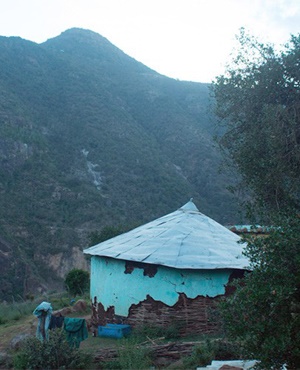
Where the land question is so real and kicking, one ought to ask: what is the position and role of traditional leadership in constructing a systematic approach towards resolving a formidable issue of land expropriation without compensation? Are they in support of or against land expropriation without compensation?
Since the inception of democracy in 1994, the land reform mechanism proved its inefficacy to address the contentious issue of unequal distribution of land and its awful consequences.
In recent times, various communities have been demonstrating their displeasure on the current land reform system by occupying open spaces forcefully and unlawfully. One argument which appeared to be consistent across all the incidents of land-based riots in South Africa is that the government has been too slow in tackling the land expropriation issue and therefore they deemed it necessary to take the government to task by forceful and unlawful occupation of open spaces. It is the latter occurrence, among others, which led to the hastened establishment of the Joint Constitutional Review Committee, which is aimed at revisiting and reviewing section 25 of the Constitution of RSA, 1996.
I want to cast light on what could possibly be the stance of traditional leaders on the question of land expropriation without compensation. Land should not only be expropriated from those who acquired it during the “cooked” apartheid system but must also be expropriated or removed from the title of traditional leaders and be distributed to the people on an equal basis.
Lately, it appears that most of the traditional leaders are troubled and unsettled about what it appears to be the only way to go, that is, removing the land title from their minority ownership under the cap of ‘traditional authority’ to the people. Even so, when answering questions in the National Assembly, Deputy President David Mabuza stated that the lands which are currently owned by the traditional leaders were actually owned by the people previously and he concluded his session by emphasising that expropriation of land without compensation is going ahead notwithstanding opposite pulling forces from the traditional authorities.
Furthermore, the historical archives show that traditional authorities were, and still are, important institutions which determine the affairs of their respective communities and administer public funds on behalf of the communities they lead and play a significant role in the day-to-day administration of their communities.
It was trite that no other body in the community would have more powers than those of the traditional leaders during apartheid, but in contemporary South Africa, this is rapidly becoming obsolete.
The trend of traditional leadership changed tremendously following the arrival of colonists. The introduction of colonialism in traditional authority is to be blamed for the current monopolisation of land by traditional leaders and the accumulation of the bulk of land by this group.
It is also through the colonial system that traditional leaders turned out to be the energetic agents of the colonial rulers. It is during these times whereby traditional leaders were acknowledged and incentivised by colonial rulers to advance, enhance and promote the intentions and stratagems of colonial missions and agendas.
To that end, the current retaliation of traditional leaders towards land expropriation without compensation should not come as a surprise, it has been their slogan and it portrays nothing far from what they have learnt when they were “colonial agents” serving the colonial regime under the apartheid system. By all necessary means, this autocratic tendency must face the dusk as it does not have space in democratic South Africa.
There is absolutely nothing, in neither the Constitution nor the statute, which prevents the government from expropriating land from whomever. However, what appears to be the central concern is that the constitutional provision regulating land reform and ownership does not provide the methodology and/or approach as to how the land can be expropriated by the government. In other words, section 25 of the Constitution is a skeleton which still lacks flesh in order to function accordingly. It needs a supplementary statute which will give effect to its wish and mandate.
So, the traditional leaders really have nothing solid and substantive that they can use to frustrate the constitutional wish of achieving equal distribution of land and equal access to land. Therefore, the government shall proceed in working on realising this constitutional wish, regardless of the relentless streams of effort to defeat it. After all, the traditional leaders are mere custodians of land belonging to the people and therefore they should understand better that they are in no position to stand against land expropriation without compensation.
What the government can do in order to ensure the culmination of this constitutional wish, is to enact the legislation which will expressly provide for land expropriation without compensation, outline the procedural guidelines of expropriating land without compensation and to also disempower all institutions (including traditional authorities) which have the potential of derailing and disturbing this transformative project.
The latter is recommended as a supplementary measure to what is already on-going, that being the review of section 25 of the Constitution. It is only through this approach that (upon being considered) land expropriation without compensation will be a thing of the past and everyone will have a fair share of the natural wealth, thus satisfying the ego of justice.
- Gaopalelwe Mathiba is a final year LLB student at the North-West University and a potential LLM candidate in 2019. Follow him on Twitter @GaoMathiba
* This article first appeared on The Journalist.




 Publications
Publications
 Partners
Partners























